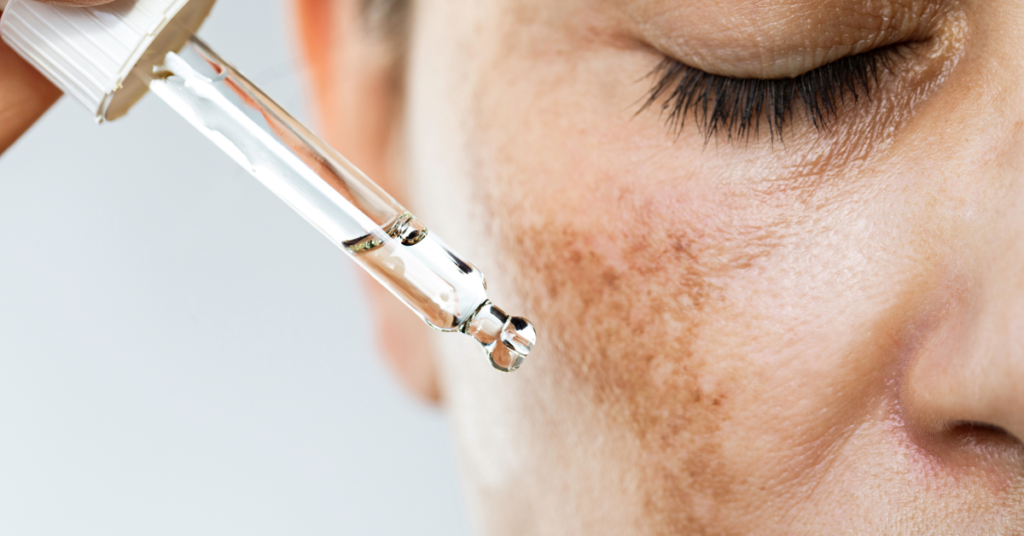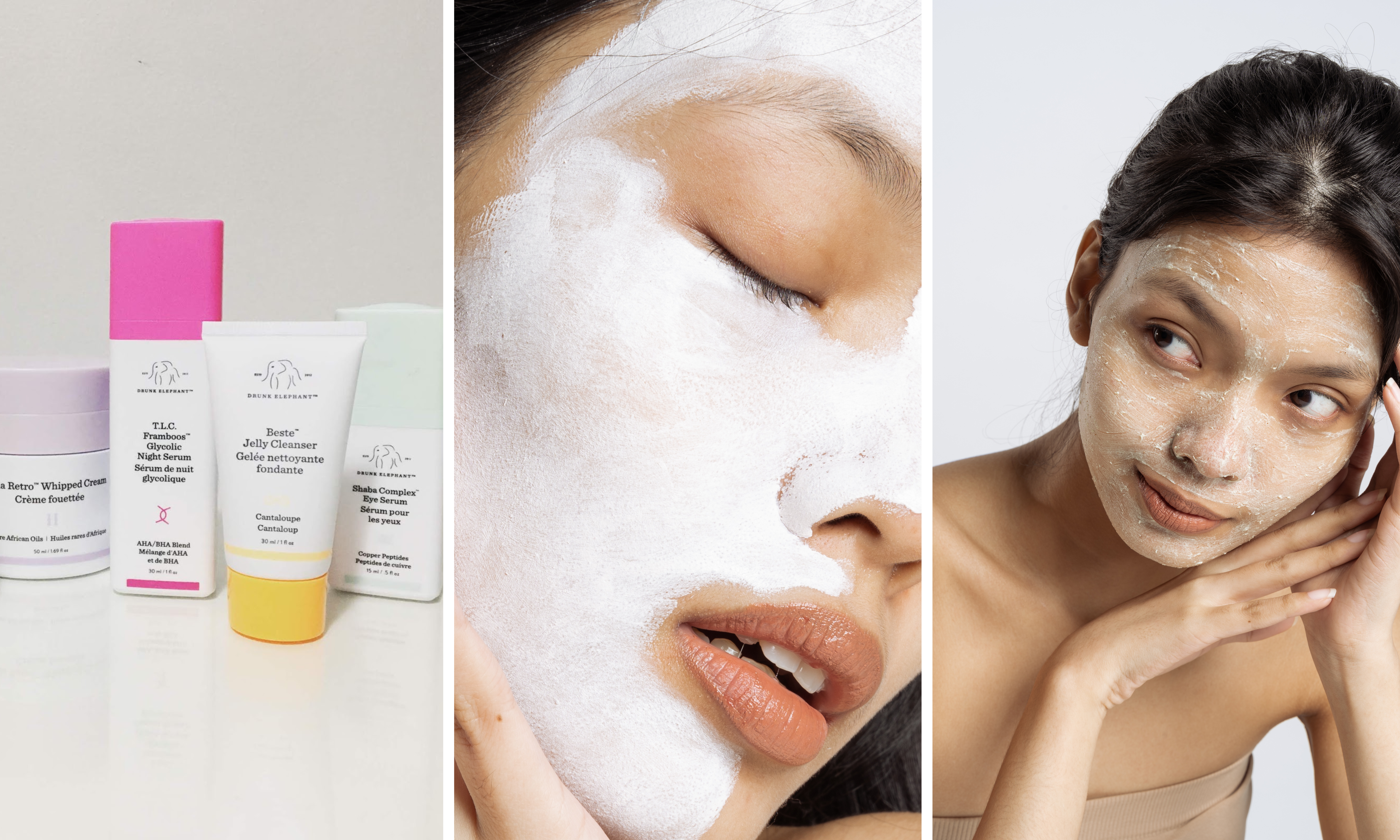Is Glycolic Acid the Secret Cure for Hyperpigmentation?
Hyperpigmentation, a common and often frustrating skin issue, can leave many of us feeling self-conscious and seeking effective treatments. While there’s a myriad of products on the market that claim to reduce or even eliminate these stubborn dark spots, not all are created equal. In this comprehensive guide, we’re zeroing in on a powerful ingredient that has garnered much attention for its efficacy in treating hyperpigmentation: glycolic acid.
This article aims to be your one-stop resource for understanding how glycolic acid for hyperpigmentation can offer a potent and effective solution. We will delve deep into what glycolic acid is, its benefits, its effectiveness in treating pigmentation issues, and recommended products. We’ll also tackle some of the most frequently asked questions about using glycolic acid for hyperpigmentation.
So, whether you’re new to the world of skincare acids or a seasoned veteran looking to expand your arsenal, read on to find out everything you need to know about glycolic acid and hyperpigmentation.

What is Hyperpigmentation?
Hyperpigmentation is a skin condition characterized by dark patches or spots that appear on the skin’s surface. These patches occur due to an overproduction of melanin—the pigment responsible for the color of your skin, hair, and eyes. Types of hyperpigmentation can include melasma, age spots, and post-inflammatory hyperpigmentation (often resulting from acne scars).
While it can affect anyone, regardless of skin type or ethnicity, hyperpigmentation is more prevalent in people with darker skin tones. Factors contributing to hyperpigmentation can range from sun exposure and hormonal changes to certain medications and even emotional stress.
Understanding hyperpigmentation is the first step in finding an effective treatment, and that’s where glycolic acid comes into the picture. This alpha hydroxy acid has been cited in numerous studies as a front-runner in treating various skin pigmentation issues.
What is Glycolic Acid?
Glycolic acid is a type of alpha hydroxy acid (AHA), originally derived from sugar cane. It’s a water-soluble compound frequently used in skincare products for its exfoliating and rejuvenating properties. By breaking the bonds between dead skin cells, glycolic acid aids in sloughing off the top layer of the skin, revealing fresher, more radiant skin underneath.
While it’s commonly found in a variety of skincare products like cleansers, toners, and moisturizers, glycolic acid is especially effective in specialized treatments such as chemical peels. These peels use higher concentrations of glycolic acid to deeply exfoliate the skin, often yielding quicker results when it comes to addressing specific issues like hyperpigmentation.

Why is Glycolic Acid Effective for Skincare?
The molecular size of glycolic acid is small, which allows it to penetrate the skin easily. This makes it highly effective for treating a range of skin conditions, including acne, fine lines, and of course, pigmentation. Due to its ability to accelerate skin cell renewal, glycolic acid not only helps to improve the skin’s texture but also fades dark spots, making it a highly sought-after ingredient in the skincare world.
Why Use Glycolic Acid for Hyperpigmentation?
Given its capabilities, it’s no surprise that glycolic acid is one of the best acids for hyperpigmentation. Its primary function of speeding up skin cell turnover helps to remove darkened layers of skin more quickly, making room for new, evenly pigmented skin cells to replace them. When used consistently and correctly, glycolic acid can significantly improve the appearance of dark spots and uneven skin tone.
Clinical Studies and Evidence
Several clinical studies corroborate the effectiveness of glycolic acid for hyperpigmentation. These studies often show significant improvement in skin pigmentation after a series of treatments with glycolic acid peels, emphasizing the ingredient’s efficacy.
How it Compares to Other Acids
You might be wondering, “Which acid is best for hyperpigmentation?” While glycolic acid is a powerful option, other AHAs like lactic acid and mandelic acid, as well as beta hydroxy acids (BHAs) like salicylic acid, are also used for treating hyperpigmentation. When it comes to effectiveness, studies have found glycolic acid to be among the most potent, particularly when used in higher concentrations like in a glycolic acid peel for hyperpigmentation.
Comparatively, is salicylic acid or glycolic acid better for hyperpigmentation? Both have their merits. Glycolic acid is generally preferred for treating hyperpigmentation due to its ability to penetrate deeper into the skin, but salicylic acid can be more suitable for acne-induced hyperpigmentation, especially for those with oily skin.
By now, you should have a fairly good idea of why glycolic acid is a potent weapon in your skincare arsenal, particularly for combating hyperpigmentation. In the sections to come, we’ll dive into product recommendations, answer frequently asked questions, and discuss real-life experiences of using glycolic acid for hyperpigmentation.

Suggestions for Continuing Your Skincare Journey
- Hada Labo cleansing oil: The Japanese Skin Secret
- The Road to Even Skin: Best Hyperpigmentation Products for Every Skin Type
- Can Water Fasting Really Clear Your Skin? Discover the Truth
Related Topics
- Why Is My Skin Uneven and Bumpy? Major Causes and Solutions
- 12 Pore Minimizing Face Washes: Your Key to Clearer Skin
- The Ultimate Guide to Retinol: Understanding, Benefits, and Best Products
Glycolic Acid Products for Hyperpigmentation
Navigating the plethora of skincare products can be overwhelming, especially when you’re targeting a specific issue like hyperpigmentation. However, some products have stood out in both customer reviews and clinical studies, and these often contain glycolic acid as a key ingredient. Below are some categories of glycolic acid products that are specifically geared toward treating hyperpigmentation.
Glycolic Acid Creams
Creams are an excellent choice for daily maintenance. Look for creams that contain a lower concentration of glycolic acid for regular use. Products like Glyco 12 cream for pigmentation or Glyco 6 cream for hyperpigmentation have received positive reviews for their effectiveness.
Glycolic Acid Toners
Toners can prep your skin to absorb other products better. The Ordinary’s Glycolic Acid 7% Toning Solution has been highlighted in various online discussions, including on Reddit, for its effectiveness in treating hyperpigmentation.
Glycolic Acid Peels
For a more intense treatment, you may consider a glycolic acid peel for hyperpigmentation. These peels use a higher concentration of glycolic acid and can offer quicker results. However, it’s crucial to either consult a dermatologist or follow the product instructions carefully to avoid adverse reactions.
FAQs
The journey to clearer skin often raises many questions. Let’s tackle some of the most commonly asked ones about glycolic acid and hyperpigmentation.
How long does glycolic acid take to reduce hyperpigmentation?
While individual experiences may vary, consistent use of glycolic acid products can show noticeable results within 4-6 weeks. However, for deeper or more stubborn dark spots, it might take up to three months.
Is vitamin C or glycolic acid better for pigmentation?
Both Vitamin C and glycolic acid offer unique benefits. While glycolic acid focuses on exfoliating the skin to reveal new layers, Vitamin C aims to lighten pigmentation and provide antioxidants. For the best results, many dermatologists recommend using both in a balanced skincare routine.
Which acid is best for hyperpigmentation?
Glycolic acid is generally considered one of the most effective acids for treating hyperpigmentation due to its small molecular size, allowing it to penetrate deeply into the skin.
Is salicylic acid or glycolic acid better for hyperpigmentation?
While both acids are effective in treating hyperpigmentation, glycolic acid is usually preferred for its deeper penetration. However, for those dealing with acne-induced hyperpigmentation, salicylic acid may be more appropriate.
Real-Life Experiences: Before and After
In a world where pictures often speak louder than words, many have turned to platforms like Reddit to share their personal experiences, including before and after photos, using glycolic acid for hyperpigmentation. The results can be compelling and help potential users get a clearer understanding of what to expect.

Testimonials
- “Using The Ordinary’s Glycolic Acid Toner helped fade my dark spots significantly within a month!”
- “I tried a glycolic peel for dark spots and was amazed by the results after just one session.”
Precautions and Side Effects
While glycolic acid is generally safe for all skin types, there can be some precautions and side effects to consider:
Can Glycolic Acid Cause Hyperpigmentation?
In some cases, especially when used improperly, glycolic acid can cause hyperpigmentation. It’s crucial to do a patch test first and follow the product guidelines or consult a dermatologist to avoid this risk.
Sensitivity and Sun Exposure
After using glycolic acid, your skin may become more sensitive to the sun, increasing the risk of sunburn. Always use a broad-spectrum SPF after applying glycolic acid products to your skin.
How to Use Glycolic Acid for Different Areas of the Body
While we mostly focus on facial hyperpigmentation, glycolic acid can also be used effectively on other areas of the body.
Glycolic Acid for Body Hyperpigmentation
Products like glycolic acid lotions can be used on larger areas like the legs or the back for treating hyperpigmentation.
Targeted Treatments
For more specific areas like the underarms or the bikini area, lower concentration glycolic acid creams are usually recommended to avoid irritation.
Conclusion
Hyperpigmentation can be a stubborn skin issue to tackle, but with the right products and a well-informed approach, significant improvement is possible. Glycolic acid, backed by scientific research and numerous success stories, offers a potent solution for tackling dark spots and achieving more even skin tone. Whether you opt for a daily cream, a toning solution, or a more intense peel, this alpha hydroxy acid could very well be the game-changing ingredient your skincare routine has been missing.



